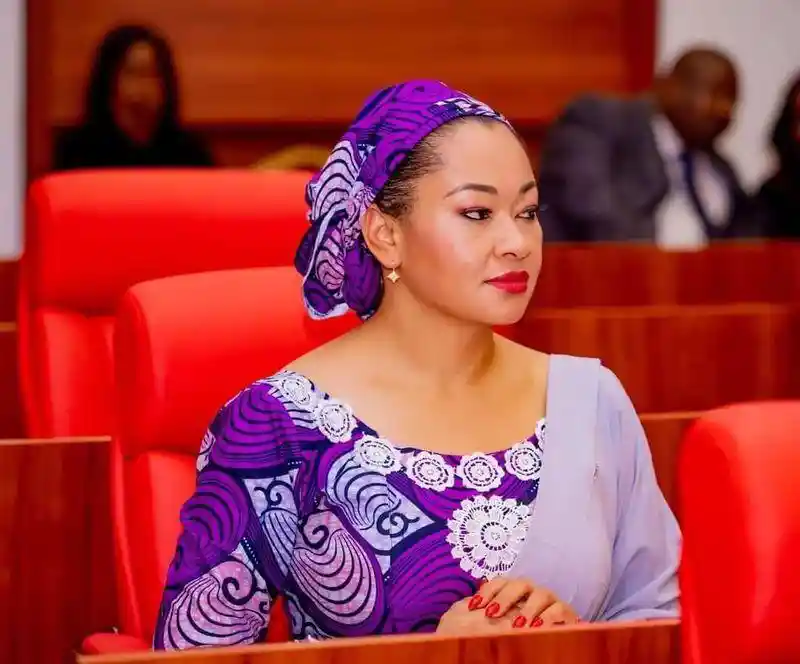Gunmen Attack Senator Natasha Akpoti-Uduaghan’s Residence in Kogi
- Advertisement -
In a disturbing development that has heightened tensions across Kogi State, unidentified gunmen in the early hours of Tuesday, April 16, launched a violent attack on the family residence of Senator Natasha Akpoti-Uduaghan in Ihima, Okehi Local Government Area.
The armed men, numbering at least three, reportedly arrived at the property at about 1:00 a.m. and unleashed chaos, wielding cutlasses and firearms. Eyewitnesses and local sources confirmed that the attackers smashed windows, damaged building structures, and caused considerable panic among residents in the surrounding area.
The motive behind the brazen assault remains unclear, and no casualties were recorded. However, the incident has sparked widespread concern over the growing climate of insecurity in Kogi Central Senatorial District and has intensified political tensions in the state.
- Advertisement -
Swift Police Response Following Report
Upon receiving information from Senator Akpoti-Uduaghan’s Chief Security Officer, Yakubu Ovanja, officers from the Okehi Police Division were swiftly deployed to the scene. Though the attackers had already fled before law enforcement arrived, a preliminary investigation has since commenced.
- Advertisement -
Security operatives are yet to make any arrests as of the time of filing this report. However, efforts are ongoing to identify and apprehend the perpetrators.
Speaking anonymously, a senior police source told TJ News Nigeria that investigators are exploring several angles, including the possibility of political intimidation or personal vendetta.
“No one has been arrested yet, but the Commissioner of Police has ordered an intelligence-driven probe. We are looking at all available leads,” the officer said.
- Advertisement -
Senator Yet to Issue Formal Statement
Senator Natasha Akpoti-Uduaghan, who represents Kogi Central in the Red Chamber, has remained silent since the incident. Her media aides have also declined to comment publicly, stating only that “security agencies are handling the situation.”
However, sources close to the senator revealed she was “deeply concerned” by the attack, which comes amid a wave of controversies surrounding her recent political engagements.
A Timeline of Growing Tensions
Senator Akpoti-Uduaghan, a prominent figure in Nigerian politics and a vocal advocate for social justice, has in recent weeks been at the center of national headlines. Her ongoing dispute with Senate President Godswill Akpabio over allegations of sexual harassment has generated widespread debate and polarized public opinion.
- Advertisement -
In late March, Senator Akpoti-Uduaghan accused Senate President Akpabio of making inappropriate advances toward her during a private meeting in 2018, a claim which Akpabio has vehemently denied.
The matter has since become a subject of public discourse, drawing reactions from civil society organizations, women’s rights groups, and fellow lawmakers. While some have called for an independent investigation, others have dismissed the allegations as politically motivated.
Observers believe that the recent attack on her family home may not be unconnected with the controversy. A security analyst, who spoke on condition of anonymity, stated:
“Whether or not this attack is directly linked to her case with the Senate President, it’s clear that Senator Akpoti-Uduaghan’s growing influence and fearless stance have made her a target. The pattern of political intimidation in Nigeria cannot be ignored.”
Kogi’s Fragile Security Landscape
Kogi State, often referred to as the “Confluence State,” has in recent years struggled with persistent security challenges. From kidnappings and armed robbery to politically motivated violence, the state remains a flashpoint in Nigeria’s North-Central region.
According to data from the Nigeria Security Tracker, Kogi has recorded over 200 security-related incidents in the past 24 months, with a significant portion involving clashes between political thugs and attacks on prominent personalities.
The latest incident adds to an already troubling trend. Barely three months ago, the residence of a former House of Representatives member was attacked in a similar fashion, fueling fears that political violence is on the rise ahead of the 2027 general elections.
Community Reactions and Condemnation
The attack on Senator Akpoti-Uduaghan’s home has triggered widespread outrage among constituents, activists, and human rights advocates. Many have condemned the incident as a cowardly act aimed at silencing a fearless lawmaker.
The Ihima Community Development Union (ICDU) issued a statement on Wednesday, describing the attack as “barbaric and unjustifiable.”
“We strongly condemn this act of violence against one of our own. Senator Natasha has always stood for justice, development, and empowerment. This attack is not only on her but on every progressive voice in our community,” the statement read.
Social media platforms have also been abuzz with reactions, as hashtags like #JusticeForNatasha and #StopPoliticalViolence trend across X (formerly Twitter) and Facebook.
National Assembly Silent Amid Mounting Concerns
Despite the seriousness of the attack and the fact that it involves a serving senator, the National Assembly has yet to officially react to the incident. As of press time, neither the Senate President nor any official committee has issued a statement or initiated a motion regarding the event.
This silence has drawn criticism from observers who argue that political institutions must stand united against violence, especially when it targets elected officials.
Calls for Federal Investigation Intensify
Civil society groups, including the Coalition for Electoral Integrity and Security (CEIS), are now calling for a federal-level investigation into the incident.
“We urge the Inspector General of Police and the Department of State Services to take over this case immediately. The attack on Senator Akpoti-Uduaghan is not an isolated event but part of a larger pattern of politically motivated threats and intimidation,” said CEIS Director, Mary Okonkwo.
Editor’s Note: A Test of Nigeria’s Democratic Values
The attack on Senator Natasha Akpoti-Uduaghan’s family home is more than an isolated act of violence. It represents a dangerous trend that, if left unchecked, could undermine Nigeria’s democratic foundations.
- Advertisement -


